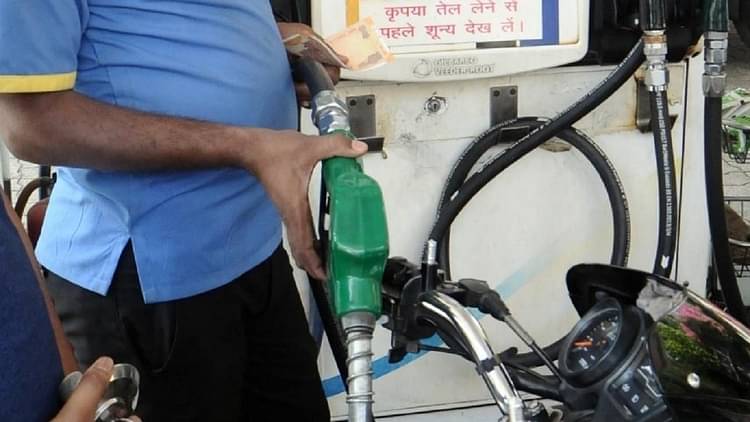Whenever petrol and diesel prices go up, the government claims it is open market forces at work. But like all pre-election times, fuel prices have suddenly stopped rising and there has been no increase for the past two weeks or so. While it is true that international crude prices have taken a breather in recent days, the reason for a stall in the century run of fuel prices in India is anything but that. It is a deal between the government and the oil companies.
Otherwise, how is it that whenever elections come, the open market policy suddenly becomes people-friendly while at all other times it works to generate ‘resources’ for the government and the oil marketing companies? There is, in fact, a clear pattern in the behaviour of fuel prices. A month before any crucial elections -- this time there are important assembly elections in West Bengal, Assam and two other states – prices stop at whatever levels they have been. But once the elections are over, sometimes even before the results start coming in, the companies are back to their game and prices start creeping up again. The companies and the government more than make up for the loss, the worst part being that it is only an opportunity loss.
Minister for Petroleum and Natural Gas Dharmendra Pradhan had recently assured the people that the price hike was only temporary and that India was in talks with oil producing countries to reduce the prices. There is no doubt Pradhan needs to be complimented for flying on the wings of imagination, but that is not going to have any effect on the thinking of the oil cartel, the sole focus of which is self-preservation and enrichment.
Pradhan says taxes are ‘resources’ for the government to help revive the economy hit by the pandemic. He has shown small mercy by not saying that people’s misery is a resource for pursuing nation’s progress, although this is what the government has been practising all along, at least in the case of petroleum prices.
While recently there has been much discussion about petroleum products being brought under GST, which would have helped prices come down a bit, such hopes have been dashed, with Finance Minister Nirmala Sitharaman clarifying in Parliament that there was no such proposal under the consideration of the government. Then she gave an officious explanation that such issues are decided by the GST Council and that the Council has not so far made any such recommendation. The Council may consider the issue of inclusion of petroleum products “at a time it considers appropriate keeping in view all the relevant factors including revenue implication,” she said.
So, it is obvious that the government’s revenue consideration is the main determining factor, when it comes to pricing of petroleum products. All other issues, including the hardships higher prices bring to the common people, are irrelevant, except in times of elections.
It is sheer coincidence that the international crude prices have lost some momentum in their relentless upward push ever since the producers’ cartel decided to be firm on their output curbs. It is only due to setbacks in the vaccination programme that prices have stayed within the $70-mark, which can translate into retail petrol prices in the vicinity of Rs 100 in India. It is a different matter that even when crude prices were at their historic peak, prices in India were nowhere near the 100-mark.
It is a point of consolation for the Indian consumers that for global oil demand to fully recover to pre-Covid levels, a successful and rapid vaccination of the global population needs to take place. Before the recent setback, there was positivity that the campaigns underway were on the right track. Halting the application of AstraZeneca’s Covid-19 vaccine in several countries across the world has caused many more nations to debate a similar stance and has put the speed of the oil demand recovery at risk. It now depends on how quickly the vaccination campaigns resume, for which some scientific proof is needed that the vaccines are safe and unrelated to blood clots, and providing that can take some time to research and verify.
































